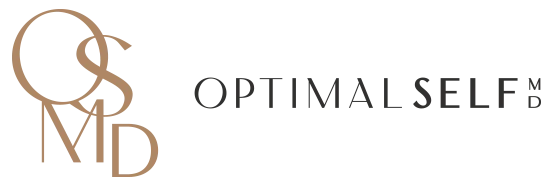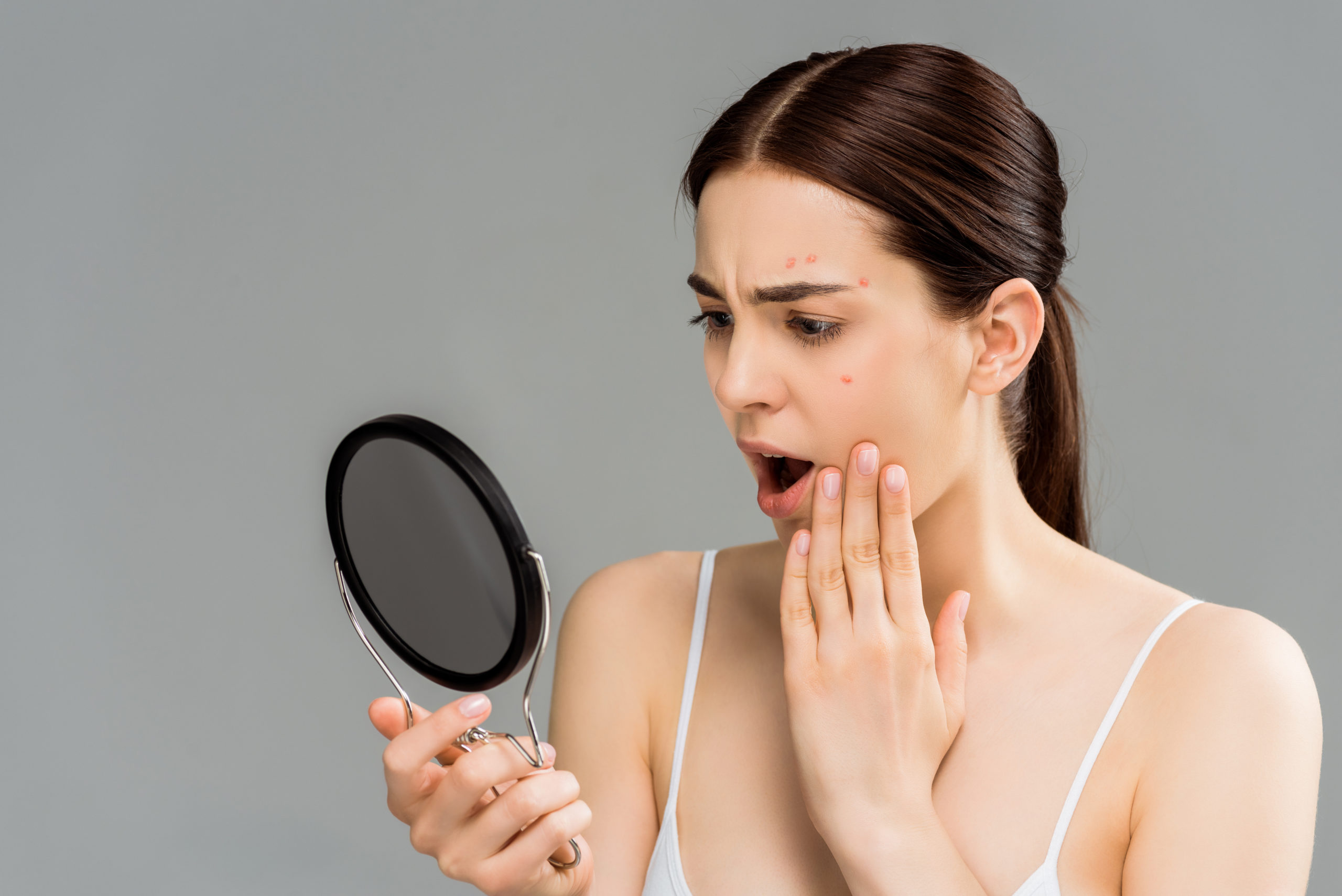Acne! We thought it would be over after we got through those awkward teenage years, but not always!
What’s to blame?
Adults can develop acne, too, often for the first time ever! Several hormones have been linked to acne: the androgens testosterone, dihydrotestosterone (DHT) and dehydroepiandrosterone sulfate (DHEAS), as well as insulin-like growth factor (IGF-I). They stimulate growth of sebaceous glands, which fill your pores up with sebum, feeding bacteria that live in these pores. Other hormones like cortisol, which is increased during periods of stress, can do the same thing.
Development of acne in later years is uncommon, although this is the most common age group for rosacea, which may have a similar appearance. True acne vulgaris (cystic acne) in adult women is rare, and may be a feature of an underlying condition such as pregnancy or disorders such as polycystic ovarian syndrome (too much testosterone) or Cushing’s syndrome (too much cortisol).
Menopause-associated acne, which is more common, occurs as production of the natural anti-acne ovarian hormone estradiol drops precipitously. The lack of estradiol also causes fun symptoms like thinning hair, hot flashes, thin crepey skin, fine lines and wrinkles, vaginal dryness, and predisposes to osteopenia and osteoporosis. Just think, after all those “child-bearing” fertile years, this is our reward?
But that’s not all!
Diet has also been linked to acne. The consumption of sugar, too much fat, and dairy products have all been very closely linked with adult acne. In fact, fatty, sugary foods are predictably associated with breakouts in the majority of women. Goodbye, Krispy Kreme. How does it happen? These foods cause an inflammatory response, which is manifested through the skin.
Gut health is also important when it comes to healthy skin. A healthy microbiome can neutralize inflammation before it causes symptoms like acne. It’s also key when it comes to hormone metabolism and detoxification. Did you know there are certain probiotic strains that fight acne?
What can I do?
Take a close look at your diet. Start by eliminating sugar and unhealthy fats like inflammatory vegetable oils, trans fats, and too much saturated fat. Reduce or eliminate dairy products for a few weeks to see how your body responds.
Watch your stress levels. It’s an unavoidable fact of life, but how you handle it is key. Decide that you’re not going to let stress derail your life and wreck your skin. Herbs like Ashwaganda and Holy Basil, and the amino acid L-theanine can help in the short term.
Pay attention to gut health! Proper elimination is key. If you have trouble with regularity, or deal with indigestion, gas, or bloating you may have a microbiome imbalance or overgrowth of yeast. Increase fiber and water intake, and add a quality probiotic.
Balance your hormones! If you suspect a hormone deficiency or excess, see someone who’s skilled in treating the condition and get the proper testing done. Hormone testing can be done with blood, urine, or saliva. Sometimes it takes more than one method to accurately detect what’s going on.
A skin care consultation can be helpful for determining what topical products can help. Retinoids or retinol, azelaic acid, antibiotics, and alpha and beta hydroxy acids can treat acne from the outside.
Systemic treatment is best done by a licensed professional. Oral antibiotics and androgen blockers are sometimes indicated. Prescription bio-identical hormones are the solution for some. Again, find a trusted professional to help guide you.
In-office treatments such as manual extraction, the Hydrafacial, dermaplaning, chemical peels, and LED light therapy can help with opening pores, killing bacteria, and exfoliating skin, preventing further breakouts. Microneedling and IPL laser can help with scarring and hyperpigmentation. Make sure your aesthetician is licensed and physician supervised.
References:
Bagatin E, Freitas THP, Rivitti-Machado MC, Machado MCR, Ribeiro BM, Nunes S, Rocha MADD. Adult female acne: a guide to clinical practice. An Bras Dermatol. 2019 Jan-Feb;94(1):62-75. doi: 10.1590/abd1806-4841.20198203. Erratum in: An Bras Dermatol. 2019 Mar-Apr;94(2):255. Machado MCR [corrected to Rivitti-Machado MC]. PMID: 30726466; PMCID: PMC6360964.
Penso L, Touvier M, Deschasaux M, Szabo de Edelenyi F, Hercberg S, Ezzedine K, Sbidian E. Association Between Adult Acne and Dietary Behaviors: Findings From the NutriNet-Santé Prospective Cohort Study. JAMA Dermatol. 2020 Aug 1;156(8):854-862. doi: 10.1001/jamadermatol.2020.1602. PMID: 32520303; PMCID: PMC7287950.
Rahmayani T, Putra IB, Jusuf NK. The Effect of Oral Probiotic on the Interleukin-10 Serum Levels of Acne Vulgaris. Open Access Maced J Med Sci. 2019 Oct 10;7(19):3249-3252. doi: 10.3889/oamjms.2019.718. PMID: 31949525; PMCID: PMC6953923.

